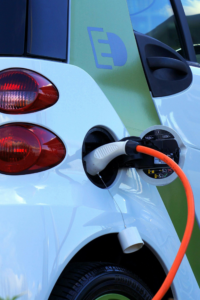In recent years, the imperative of addressing climate change and transitioning towards a sustainable future has become increasingly urgent. Corporations worldwide are reevaluating their practices to align with environmental goals, and among them stands Volkswagen Group, a global automotive giant, with a mission that extends beyond just manufacturing vehicles. Volkswagen’s commitment to the circular economy and decarbonization has become a cornerstone of its operations, setting ambitious targets and implementing innovative strategies to drive positive change.
Decarbonization literally means reducing CO2 emissions. Volkswagen Group took up the challenge aiming to create a CO2-free global economy, embracing the principles of the circular economy as part of its broader sustainability strategy.
One of Volkswagen’s key initiatives in its pursuit of decarbonization is its commitment to electrification. The company has invested heavily in developing electric vehicle (EV) technology, with a goal of offering electric versions of all its models by 2030. By transitioning away from internal combustion engines to electric powertrains, Volkswagen aims to significantly reduce greenhouse gas emissions associated with its vehicles, contributing to a cleaner transportation sector.
However, Volkswagen understands that achieving a carbon-neutral future requires more than just electrification. The company is also focused on improving the sustainability of its supply chain. This includes sourcing raw materials responsibly, reducing energy consumption in manufacturing processes, and minimizing waste generation. Furthermore, Volkswagen is exploring innovative recycling and remanufacturing techniques to ensure that materials from end-of-life vehicles are reintegrated into the production process, closing the loop and reducing the need for virgin resources.
In addition to its efforts within its own operations, Volkswagen is actively collaborating with partners across industries to drive systemic change. This includes partnerships with suppliers, governments, NGOs, and other stakeholders to develop sustainable mobility solutions and advocate for supportive policies.
One example of Volkswagen’s collaborative approach is its involvement in the formation of the Circular Economy Network in the automotive sector. This initiative brings together leading automotive manufacturers, suppliers, and experts to share best practices, collaborate on research and development, and drive innovation towards a circular economy.
Furthermore, Volkswagen is exploring new business models that align with the principles of the circular economy. This includes initiatives such as car-sharing and mobility-as-a-service platforms, which promote the efficient use of vehicles and resources while reducing the overall environmental footprint of transportation.
However, Volkswagen acknowledges that the transition to a circular economy and decarbonization is a complex and multifaceted challenge that requires continuous innovation and adaptation. As such, the company remains committed to ongoing research and development, as well as transparent reporting on its progress towards its sustainability goals.

